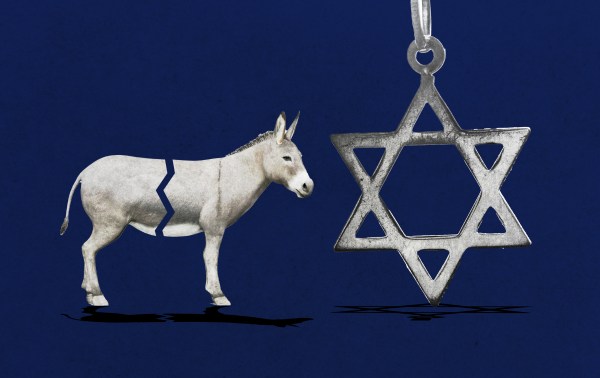Dear Reader (Including members of the Bailey Beach Club Diversity Committee who may suddenly be too busy to read this “news”letter),
I want to talk to you about everything going on right now.
Unfortunately, according to Brandeis University’s Prevention, Advocacy and Resource Center’s “Oppressive Language List,” I just oppressed you.
See if you can figure out why. I’ll wait. Give up?
I’ll forgive you for not knowing this, but apparently the phrase “everything going on right now”—damn, I did it to you again—is oppressive. Why? Because, I defecate you negatory, “Being vague about important issues risks miscommunication and can also avoid accountability.” So, if I say, “everything going on right now” in reference to police brutality, or the pandemic, I might be letting our oppressors off the hook.
So let me be more specific. When I say “everything going on right now,” I’m referring to garbage like this. And the last thing I want to do is let the people responsible for this linguistic oppression off the hook.
Some more examples:
Brandeis also wants you to stop using the term “trigger warning” because “the word ‘trigger’ has connections to guns for many people; We can give the same heads-up using language less connected to violence.”
The Federal Aviation Administration issued a report on how to deal with drones. That’s a legitimately important subject. Fortunately, they did such a bang up job solving all that, they had time left over to fix the oppressive language of aviation. The “FAA Gender-Free Style Guide Recommendations” appended to the report call for replacing “he” and “she” with “they” and “them,” “airmen” with “air crew” etc. They also want to do away with “cockpit” because “on occasion masculine crew members have wielded the term ‘cockpit’ to exclude or undermine femme coworkers.”
The Biden White House’s budget proposal refers—in one section at least—to people who have babies as “birthing persons.”
In a similar vein, in an essay—none dare call them “op-eds” anymore—in today’s New York Times, a transgender man writes:
We are, all of us, in a constant stage of negotiation with the political and cultural forces attempting to shape us into simple, translatable packages. Trans people, by necessity, are more aware of these forces; that fluency is a strength, and it has afforded us an opportunity to question the stories about the “biology” of gender that are so foundational to American culture: Do we all really want to co-sign the notion that a uterus, and thus reproductive potential, is how we define womanhood? When a nonbinary person births a child, why must the birth certificate dictate that the person who gave birth is a “mother,” and what does being a “mother” even mean, exactly? What might it mean for all parents if “mother” and “father” were not such distinct categories in child-rearing? Who benefits from their continuing separation?
Now, I just ranted about the above essay on TheRemnant (out tomorrow), so I don’t want to recycle all that here. So let me start with this trigger warning thing to get me to my point.
I have no problem doing away with the phrase “trigger warning.” I’m not a fan of the term or the idea behind it. But let me concede in the spirit of generosity and humility that one doesn’t have to be categorical about this. Advising people in advance about disturbing content is perfectly fine with me. Movies have ratings and TV shows have parental advisories, and I find that not just defensible but helpful. Lots of shows depicting suicide these days come with a warning and help-line for those feeling suicidal. That seems like a better social compromise than banning depictions of suicide.
No, my main problem with the way trigger warnings have been deployed is the broadness and nature of what they’re warning about. My second biggest problem is that the science behind trigger warnings is garbage.
The systematic violence of the English language.
But that’s not why Brandeis wants to get rid of the term. It thinks “trigger” is associated with violence. Okay, if we’re going to take that seriously, let’s note that the word “trigger” derives from the Dutch word trekker, from which we get “trek.” Today, trek means a journey, but it originally meant to pull, like a wagon pulled by oxen (hence the evolution of the word). “Trigger” means something you pull; it may indeed be associated with violence, but only in the minds of people who make that association.
But if words associated with violence have to go—Muad’Dib!—there are far deadlier killing words out there. For instance, our political discourse is drenched in military language: “battleground states,” “ad blitzes,” “taking flak,” “over the target,” “scorched earth,” “political crusade,” “pyrrhic victories,” “skirmish,” “belligerents,” “political ambushes,” “nuclear options,” “war on poverty,” etc.
In fact, our entire language is littered with the corpses of dead metaphors—words and phrases that no longer mean what they once did because we forgot where they came from.
“Hotshot” is derived from heated ordnance used to set fire to enemy ships. When football players go “over the top,” it’s an homage to trench warfare from World War I. So are phrases like “in the trenches” and “no man’s land.” If I tell my daughter to get moving “on the double,” I’m using the language of war preparation.
Now, because I’m a logophile, I dig this stuff.
But in this context, I’m perfectly willing to ask, “So frickn’ what?” If you’re working freelance you don’t mean you’re a medieval mercenary willing to fight for whichever side pays you enough. I’m writing this on deadline, which means I have to deliver it by a specific time. But “deadline” was born as a Civil War term for the border around a military prison that you could be shot without warning if you crossed. Nobody tell the folks at MSNBC that their show Deadline: White House is steeped in the language of incarceration and total war.
Words change versus changing words.
Now, if you’re a clever sort, you might argue that I’m making the same point as the folks playing word games. After all, you could say, “Sure, trigger used to mean X, but now some people think it means Y, and the new meaning is trigger … I mean, disturbing.”
But is it? I’ve never met anyone who felt aggressed against when I said something like, “Let’s pull the trigger on this. Are we going out for Mexican or Chinese?”
I’ll happily concede that such people must exist, but who died and made them the bosses of everybody? Moreover, assuming these people exist, how many of them are looking to find a reason to be offended? If there are 10,000 people in America who feel oppressed by the term “trigger,” I’d guess 9,950 of them are the kind of people who walk the earth looking for reasons to be a pain in the ass. Indeed, that’s one of the problems with trigger warning culture: It trains people to be pains in the ass because it incentivizes the practice of taking offense by rewarding people with power and attention. Victimhood is powerful these days.
This is why newsrooms and universities are infested—sorry if that word offends you—with little linguistic Maoists searching out reasons to take offense. And it’s why every day we get manufactured outrages. The Pharisees at the Brandeis Prevention, Advocacy and Resource Center have a business model designed around the idea of constantly scouring the language for reasons to take offense. And that Orwellian model requires constantly changing acceptable language to catch people for being offensive.
The Mother of All Asininities
And that’s the real problem: This war on “oppressive language” is itself oppressive. The organic evolution of language from below is inherently small-d democratic. It’s undirected, emergent, and unavoidable.
Using the commanding heights of the culture, never mind the power of the federal government, to bully and shame people out of using the term “mother” is oppressive. It’s an imposition from above. It’s also staggeringly, awe-inspiringly stupid.
Let’s start with oppression. Cultural erasure is a hot topic these days. And you know what’s a deeply embedded concept in many cultures—including our own? Mothers. (It’s also a pretty deeply embedded concept in medicine, biology, and science generally, which is something to keep in mind when you hear these people say, “I believe in science.”)
I’m honestly offended that I have to explain this. Ask any black, Hispanic, Irish, Italian, Catholic, Muslim, Jew, or literally any other normal person, and they’ll tell you what “mother” means to them, both personally and as a concept. Even for people who hate their mothers, motherhood is a powerful thing (if it weren’t, they probably wouldn’t hate their mothers). In my experience, the people who invest the most meaning in motherhood are colloquially known as “mothers.” But it’s really not limited to them.
The phrase, “as American as apple pie” allegedly gained widespread popularity as “as American as motherhood and apple pie” during World War II. Reporters would ask American soldiers what they were fighting for, and a common response was, “For mom and apple pie.”
Then there’s “Mother Nature,” and… oh, forget it. I refuse to keep going. Putting me in the position of having to explain that motherhood is central to vast oceans of culture, faith, literature, language, norms, laws, and other concepts in which virtually all human civilizations are rooted is infuriating.
We didn’t get rid of the term “mother” to spare the feelings of orphans or homosexual couples. Why invest in transgender people and their sense of grievance and discomfort—as sincere and real as it may be—the moral authority to erase all of that?
I’m not advocating cruelty toward transgender people asking to get rid of the word “mother.” But I am saying that the answer should be an emphatic, albeit polite, “No. That’s not going to happen.”
The answer should be “No” on the merits: 99 percent of society should not be held hostage to the feelings of 1 percent (a generous enumeration of their representation in the population, by the way). Motherhood is too important, too entrenched, and too meaningful to get rid of. Especially when you consider that the word and concept was here first and was never intended to give offense. If I move to a country that drives on the left side of the road, I don’t get to scream that I’m being oppressed by having to adjust accordingly. Admittedly, trans people aren’t literal immigrants. But they are essentially new arrivals culturally. Showing a little deference to the supermajority culture isn’t too much to ask.
And, as I noted on TheRemnant, if you’ve spent the last 30 years hearing feminists and Handmaid’s Tale fans denounce conservatives for reducing women to mere “breeders,” I’d like to know why calling them “birthing persons” is some great victory.
Again, you don’t have to be opposed to everything the language police are doing. I for one think removing the term “niggardly” from everyday parlance is no great loss, even if the word has nothing to do with the homonymic racial epithet. But intent does matter. The FAA’s linguistic commissars want to get rid of “cockpit” because “on occasion masculine crew members have wielded the term ‘cockpit’ to exclude or undermine femme coworkers.” Maybe they should just put more energy into disciplining people who use “cockpit” in an offensive way? I mean, the kind of person determined to harass women with the word “cockpit” will not be left powerless to continue doing so if you mandate the use of “flight deck” instead. If anything, taking away the word creates opportunities for fresh “cockpit” jokes—“Let’s call it the gelded pit!” Also, that way, you won’t have to use idiotic adjectives like “masculine” and “femme” to describe crew members. I mean, who knew Luca Brasi was so far ahead of his time?
Turning “mother” into an offensive or even simply antiquated term is unfair and unjustified cultural oppression, exploiting the admirable American desire to treat people decently. Simply put: It’s asking too much.
Which brings us to the stupidity of all this. The answer should be “No” for another reason: It’s never going to happen. People aren’t going to stop using the term. And because it’s never going to happen, good and decent progressives, sympathetic to the struggles of trans people, should pull them aside and tell them, “Look, that dog won’t hunt. Pick your battles.”
And they should say this to trans allies for their own sake. Nobody is going to go nuts if individual trans people refer to their own utero-American spawning vessels as “birthing persons.” But if you want to invite a backlash against trans people, start hectoring and bullying people to refer to their own mothers as “birthing people.” Start correcting old ladies who gush about how much they love being a grandmother, “Excuse me, that’s offensive! You are a grandbirthingperson!”
See how that goes for your cause.
Let’s concede the whole of the argument: Enlightened people should abandon the word “mother” entirely. Well, if Joe Biden and the Democrats energetically campaigned on eliminating the concept of motherhood in 2020, Donald Trump would be president today and Republicans would have comfortable majorities in Congress. What I’m saying here isn’t merely criticism, it’s constructive criticism.
By all means, you’re free to fall back on the time-honored progressive practice of rolling your eyes at conservatives making too big a deal out of some PC tempest in a teapot. But this smug, hand-waving response misses how politics works. These stories aren’t isolated, they’re cumulative. The backlash against critical race theory may seem sudden, but it built up over decades. Standing against “political correctness” has gotten many a Republican elected because all of these dots in the cultural landscape form a picture a lot of people don’t like—and for good reason.
You’re free to describe yourself however you like. That’s freedom. But relentless language policing is culturally oppressive, and it’s no less so even if, in an unwitting homage to Herbert Marcuse, you claim you’re doing it to fight oppression.
Various & Sundry
Canine update: All is well with the beasties. But I don’t have too much to report because I was gone for most of the week. I even had to post reruns on my Twitter account. I did get to chase the Dingo on Monday, which is always fun. The only big news development this week—and it’s big according to canine journalistic standards—is that the Fair Jessica has issued a fatwa that the girls’ dinner be boring for a while. Normally, we chop up some protein, leftover chicken or steak and put it on top of the kibble. The girls were getting blasé about it, so Jess has put them on a straight kibble dinner regimen until their sense of entitlement abates. They’re not happy about it. They’ve talked to their union rep, they’ve filed formal grievances etc. The only glimmer of hope is that TFJ leaves for a drive to Utah tomorrow, leaving me in charge of their menu. No word on how I will deal with this issue.
ICYMI
The members-only midweek G-File on progressive kookery surrounding In the Heights, written from the Oklahoma wilds
And now, the weird stuff
Correction, June 26: Yes, we know the headline should have asked, “Who’s Oppressing Whom,?” not “Who’s Oppressing Who? We’d like to say it was a tribute to Aretha Franklin, but it had more to do with Friday rush hour. Thank you to our Twitter copy editors.







Please note that we at The Dispatch hold ourselves, our work, and our commenters to a higher standard than other places on the internet. We welcome comments that foster genuine debate or discussion—including comments critical of us or our work—but responses that include ad hominem attacks on fellow Dispatch members or are intended to stoke fear and anger may be moderated.
With your membership, you only have the ability to comment on The Morning Dispatch articles. Consider upgrading to join the conversation everywhere.